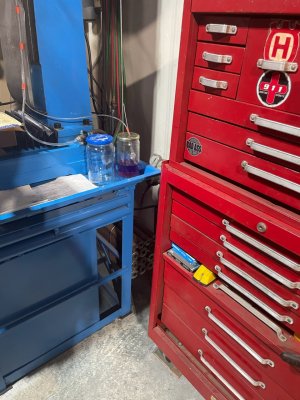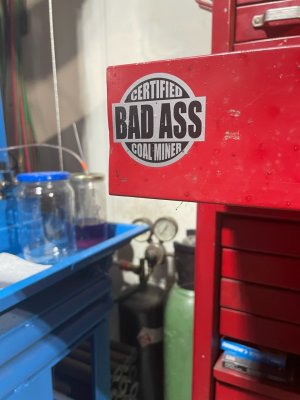Ironman
Ultra Member
I use anchor Lube and Rigid cutting oil.
But my opinion of WD40 is that it is useless. I then read that the chemical has a great affinity for steel and will cling to it in preference to other metals.
I have found that it will prevent that buildup on the cutting edge when machining or sawing aluminum. It actually works for that.
I recently had to cut a large amount of aluminum, and did not have a coarse enough blade on the bandsaw. WD40 kept the saw cutting and without it the build up would jam the blade in the cut.
For tapping and stuff I find Fluid Film to be a very good lubricant.
But my opinion of WD40 is that it is useless. I then read that the chemical has a great affinity for steel and will cling to it in preference to other metals.
I have found that it will prevent that buildup on the cutting edge when machining or sawing aluminum. It actually works for that.
I recently had to cut a large amount of aluminum, and did not have a coarse enough blade on the bandsaw. WD40 kept the saw cutting and without it the build up would jam the blade in the cut.
For tapping and stuff I find Fluid Film to be a very good lubricant.


